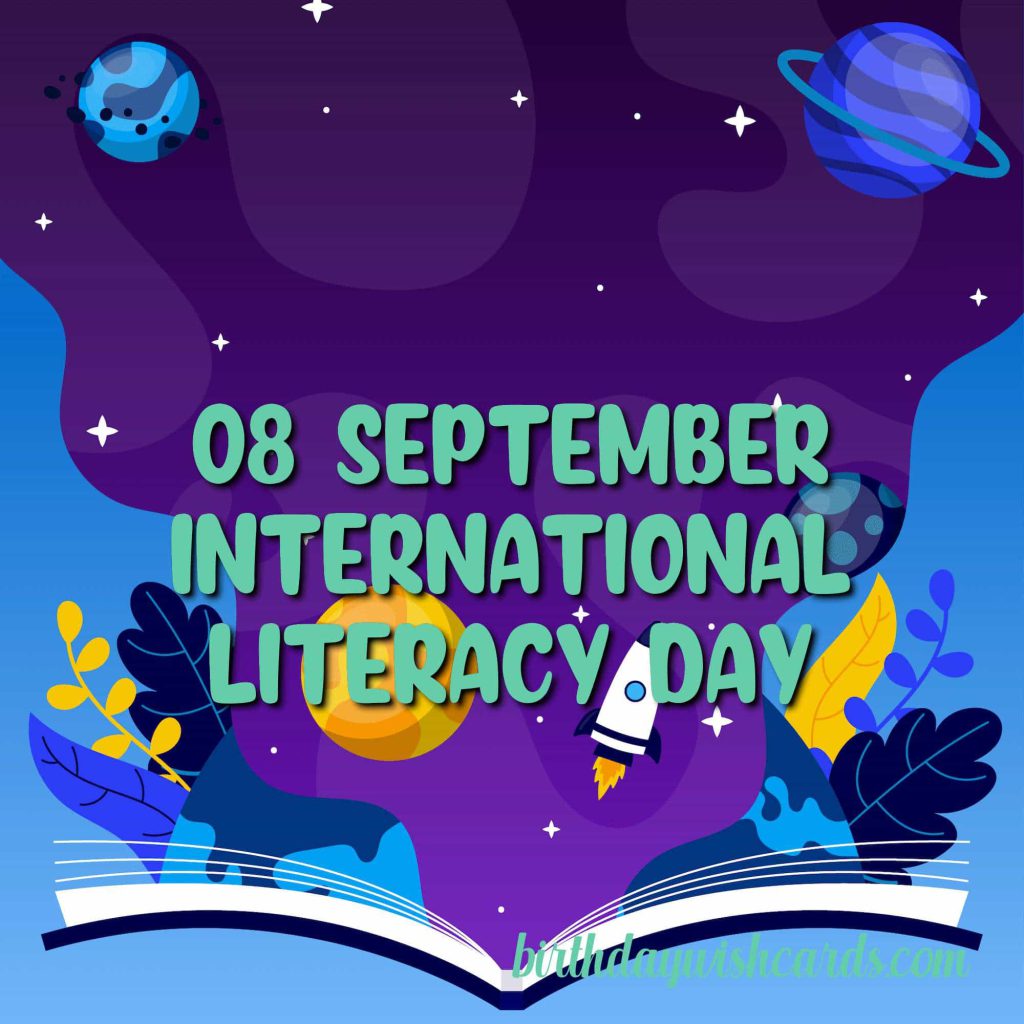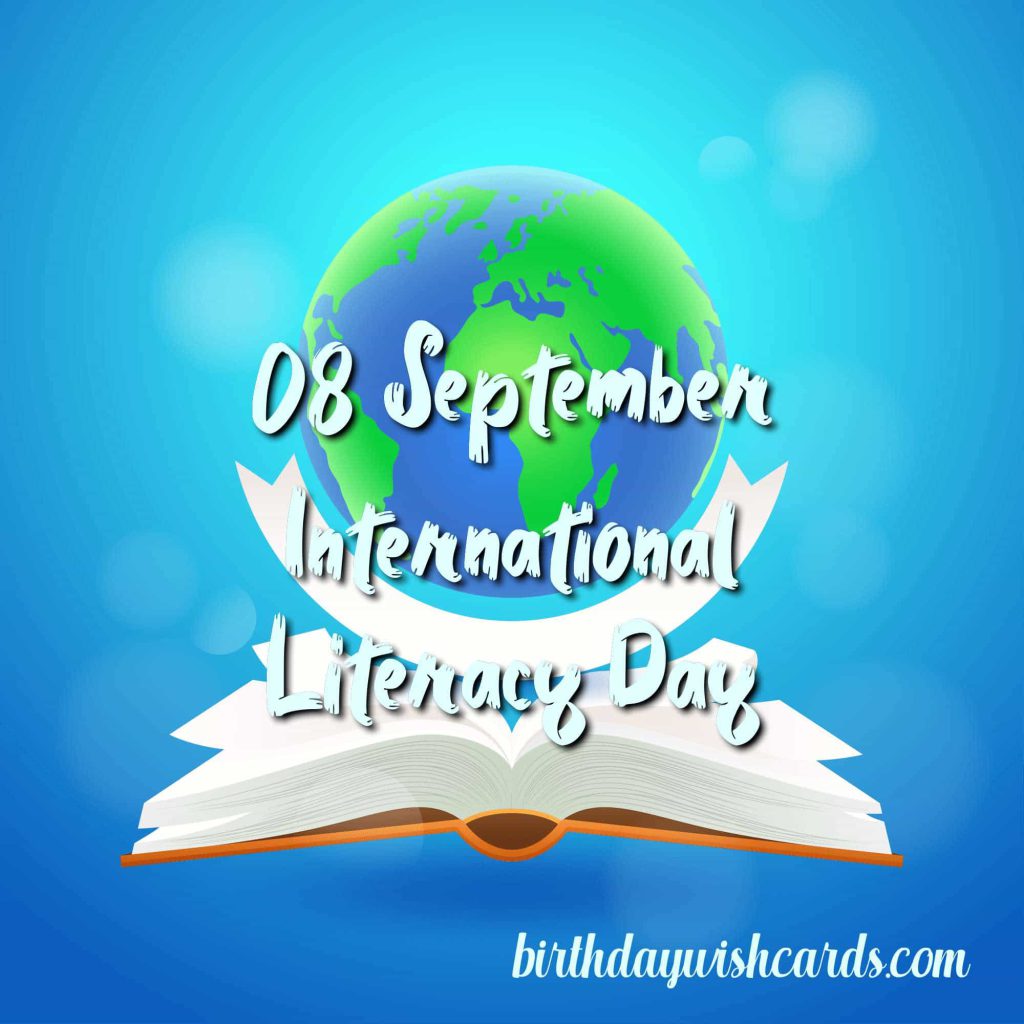
08 September – International Literacy Day: Promoting Literacy Worldwide
What is International Literacy Day?
International Literacy Day is observed every year on 8 September. Established by UNESCO in 1966, the day serves as a global reminder of the critical importance of literacy for individuals, communities, and societies. It calls for renewed commitment and action to build more literate societies around the world.
Literacy is a fundamental pillar of the United Nations’ Sustainable Development Goals (SDGs), especially within the 2030 Agenda for Sustainable Development. Adopted by world leaders in 2015, this agenda champions universal access to quality education and lifelong learning for all. Specifically, Sustainable Development Goal 4 (SDG 4) aims to ensure that all young people acquire literacy and numeracy skills, while also supporting adults who lack these essential abilities.
The Importance of International Literacy Day
International Literacy Day provides a vital platform to raise awareness about the transformative power of literacy in empowering individuals and advancing sustainable development. The 2020 theme, “Literacy teaching and learning in the COVID-19 crisis and beyond,” highlighted both the challenges and opportunities the pandemic brought to education systems worldwide.
This theme underscored the critical role of educators and the need to adapt teaching methods to sustain literacy learning during times of crisis. It also reinforced the importance of lifelong learning for both youth and adults. The COVID-19 pandemic exposed significant gaps between education policy and reality, especially affecting those with limited or no literacy skills, who are often at higher risk of exclusion and disadvantage.
During the pandemic, many countries did not include specific literacy programs in their initial education response plans. As a result, most adult literacy initiatives were suspended, with only a few continuing through alternative channels such as television, radio, or outdoor classes. International Literacy Day 2020 encouraged reflection on innovative and effective strategies to sustain literacy development during and after the pandemic, and emphasized the need for strong policies, governance, and support systems to empower educators.
Global Literacy: Challenges and Progress
Despite notable progress in recent decades, illiteracy remains a significant global challenge. According to UNESCO, over 750 million adults worldwide still lack basic literacy skills, with women and marginalized groups disproportionately affected. Literacy is more than just the ability to read and write—it is essential for accessing information, participating fully in society, and improving economic and social well-being.
Efforts to eradicate illiteracy are closely linked to broader development goals, including poverty reduction, gender equality, and better health outcomes. Literacy enables individuals to understand health information, engage in democratic processes, and pursue improved employment opportunities.
Strategies for Promoting Literacy Worldwide
Advancing literacy requires coordinated efforts from governments, educators, communities, and international organizations. Key strategies include:
- Investing in Quality Education: Ensuring access to free, inclusive, and equitable quality education for all children and adults.
- Supporting Adult Literacy Programs: Providing flexible learning opportunities tailored to the needs and schedules of adult learners.
- Empowering Educators: Equipping teachers with training, resources, and support to implement innovative literacy teaching methods.
- Leveraging Technology: Using digital tools and media to reach learners in remote or underserved areas, especially during crises like the COVID-19 pandemic.
- Raising Awareness: Engaging communities and stakeholders to value literacy and foster a culture of lifelong learning.
The Role of Technology in Literacy Promotion
Technology is playing an increasingly vital role in literacy education, particularly during global disruptions such as the COVID-19 pandemic. Distance learning tools—including educational television, radio broadcasts, mobile applications, and online courses—have helped sustain literacy instruction when traditional classrooms were inaccessible.
For instance, radio-based literacy classes have proven effective in remote rural areas with limited internet access. Mobile learning apps provide interactive and personalized literacy practice for learners of all ages. However, digital divides persist and must be addressed through infrastructure development and inclusive policies to ensure equal access for all.
How to Celebrate International Literacy Day
Individuals, organizations, and governments can mark International Literacy Day by:
- Organizing literacy campaigns and awareness events in schools, communities, and workplaces.
- Supporting local literacy programs through volunteering or donations.
- Advocating for policies that prioritize literacy and increased education funding.
- Sharing stories and successes related to literacy improvement on social media to inspire others.
- Encouraging reading habits among children and adults by providing access to books and learning materials.
The Impact of Literacy on Society
Literacy transforms societies by empowering individuals to improve their quality of life and participate actively in social, economic, and political spheres. Literate populations are better equipped to address challenges such as poverty, inequality, and health crises. Literacy also fosters innovation and preserves cultural heritage, contributing to sustainable development and global peace.
Furthermore, literacy promotes critical thinking and informed decision-making, enabling citizens to engage with contemporary issues such as climate change, human rights, and technological advancements.
UNESCO’s Role in Advancing Literacy
UNESCO leads global efforts to promote literacy through advocacy, research, and partnerships. The organization coordinates International Literacy Day celebrations and supports member states in developing effective literacy policies and programs.
UNESCO’s Global Alliance for Literacy (GAL) is a key initiative that brings together governments, civil society, and the private sector to achieve SDG 4 targets related to literacy. For the latest information and resources, visit the official UNESCO Literacy Portal.
Conclusion
International Literacy Day, observed on 8 September, is a powerful reminder of the transformative impact of literacy in building inclusive and sustainable societies. As the world continues to face new challenges—including the ongoing effects of the COVID-19 pandemic—our commitment to literacy must remain strong and adaptive. By supporting education for all and empowering both learners and educators, we can work together to close literacy gaps and unlock opportunities for generations to come.
For further insights into global education efforts and literacy development, explore resources from the United Nations Sustainable Development Goal 4 on quality education.






